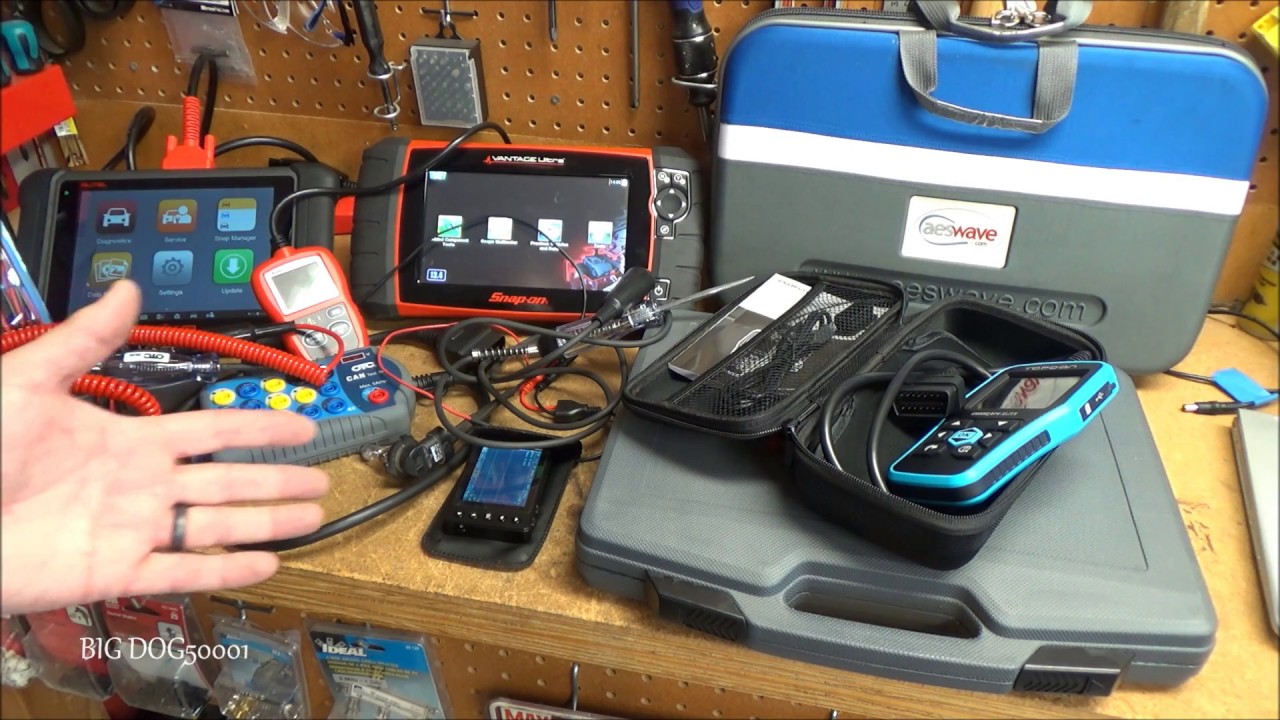At any garage, having reliable DIY car diagnostic tools is key to effective operations. Starting out, consider investing in a basic code reader which plugs into the OBD-II port and produces alphanumeric error codes to assist with diagnosis.
Opt for an advanced scan tool that allows you to reset service lights and send commands directly to sensors – like the Launch X431 series scanners which receive rave reviews.
Test Light
If you need to test a fuse, battery terminal, alternator or any other component in a car but lack access to a multimeter, using a simple test light is an ideal way to do it quickly and cost effectively. Not only is it quick to connect but can even help ensure you don’t accidentally set off its airbags (probing wrong wire can cost thousands in repairs!).
If your check engine light or dashboard warning indicators require further investigation, a scan tool is an essential investment. Plugged into your vehicle’s OBDII port – usually found under the steering wheel or dash on the driver side – these tools connect directly with its computer system, offering easy-to-follow prompts to provide diagnostic trouble codes.
Basic scan tools can be purchased at most auto parts stores. If you plan on performing more DIY work or need additional information such as technical service bulletins, module testing, and graphing features, upgrading to an OBD-II scanner might be worth your while – some even allow for the clearing of check engine lights or monitoring sensor values! Just remember to return it back when done.
Multimeter
Multimeters are essential tools for anyone attempting to perform DIY car repair and maintenance. Their multiple measurements – voltage, current and resistance – make troubleshooting electrical problems easier than ever before.
Most digital multimeters include two wired probes – red and black in color with metal tips insulated by plastic. One probe connects to the “COM” terminal of the multimeter while the other one can either go into one of two terminals marked “volts (V) or ohms”; check your multimeter’s manual to discover their meaning. Some multimeters also include diode check features that can help identify any defective or missing diodes in a circuit.
As soon as a mechanic suspects an electrical problem, they first test for voltage. If your voltmeter reads 12.6 or higher, that indicates your battery is still good; otherwise it indicates it could be failing or defective. Furthermore, checking fuse box voltage levels is also useful; most digital multimeters offer this function – just ensure the probes don’t rest against metal parts of your car as doing this may cause short-circuiting issues.
An on-board diagnostics scanner or code reader is an invaluable addition to a DIY car diagnostics toolkit. These devices plug directly into OBD2 connectors and translate engine computer codes into simple language that helps diagnose electrical issues more quickly and accurately.
Non-Contact Infrared Thermometer
DIY mechanics looking to expand their abilities may find that using a non-contact infrared thermometer is invaluable in diagnosing what might be amiss with their vehicle. By measuring temperature variations without touching surfaces directly, this tool helps technicians avoid damage while remaining safe when working under the hood or other hot surfaces.
Use of non-contact infrared thermometers correctly can detect thermal radiation of an object and provide accurate digital readings with remarkable accuracy. Furthermore, these devices take into account an object’s emissivity which ensures accurate comparison of multiple items that emit at different rates.
These tools can be used to detect issues like break dragging and thermostat failure that could be leading to overheating in your vehicle. Furthermore, they’re an invaluable way to inspect hard-to-reach areas under the hood which tend to get hot during engine operation or can’t be reached easily during its running hours.
If you’re in search of an easy and accurate DIY car diagnostic tool, be sure to explore our selection of non-contact infrared thermometers from top brands like General Tools. With multiple models from this selection available for purchase today, be confident you are purchasing the ideal tool. Reach out today for more information or placing your order!
Vacuum Pump and Pressure Testing Kit
A vacuum pump and pressure testing kit is an invaluable asset when performing DIY car diagnostic tasks. Use it to check fuel pump pressure, vacuum control system function, intake manifold leaks, blown head gaskets, worn piston rings and other common engine issues. Plus it includes a gauge, hose, adapters and detailed usage/testing instructions!
A multimeter is an essential tool in any garage, measuring resistance and voltage for accurate identification of faulty circuits or battery charges. A quality multimeter can often be found at local hardware stores at affordable prices.
An additional useful tool is a mechanic’s stethoscope, which can help detect rattles or any signs of mechanical trouble. Available both online and at most automotive stores, this modified medical device makes listening for rattles much simpler.
Car code readers provide another great option for diagnosing issues on your own without needing to visit a shop. They connect directly to your OBD-II port in your vehicle and can read diagnostic codes that pinpoint specific issues; some even display live data and graphing capabilities – plus advanced models connect directly with smart phones for seamless diagnostic power on-the-go!



